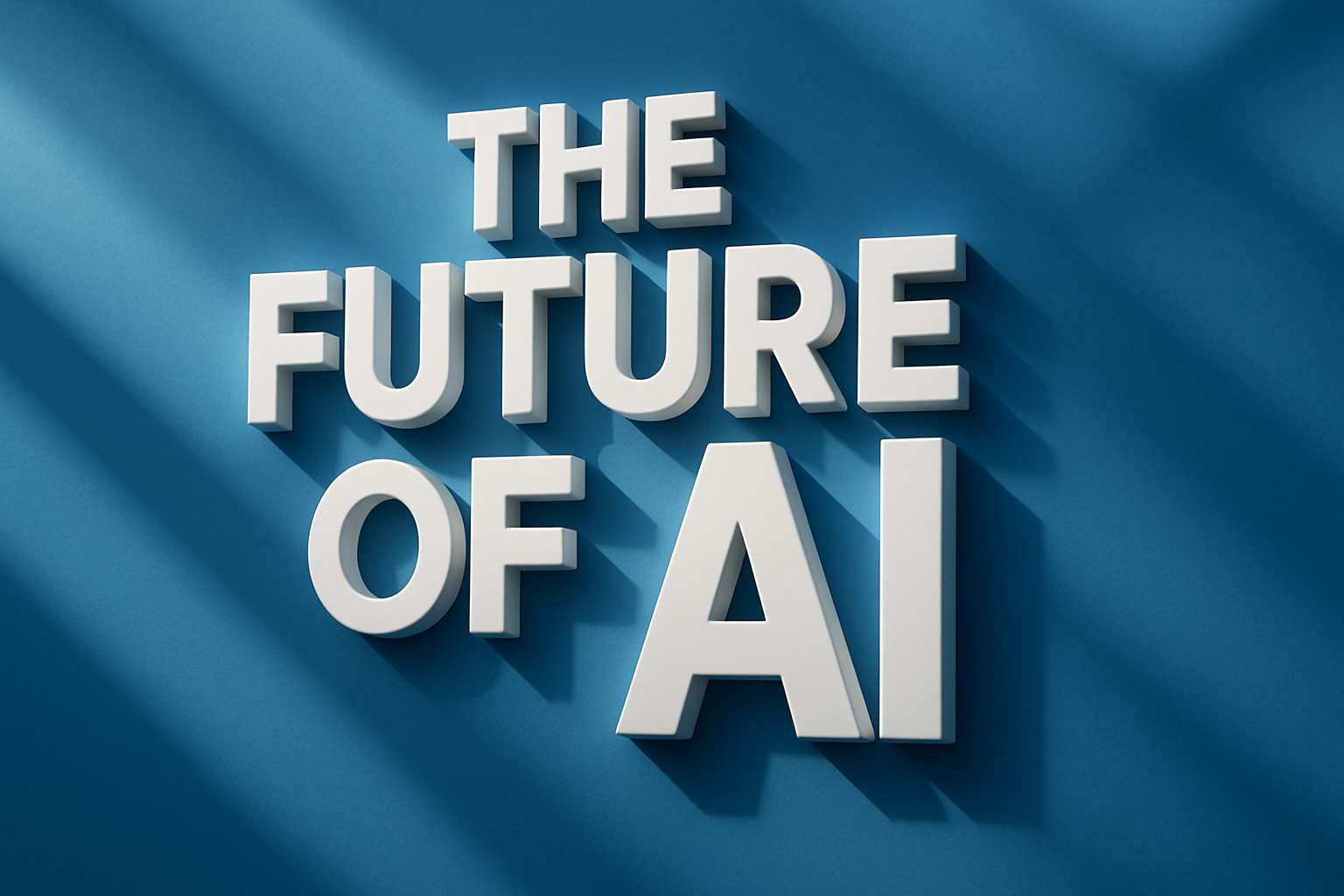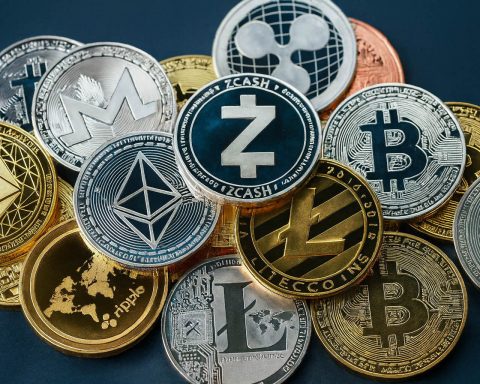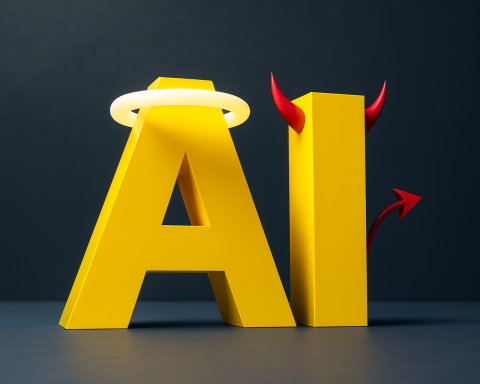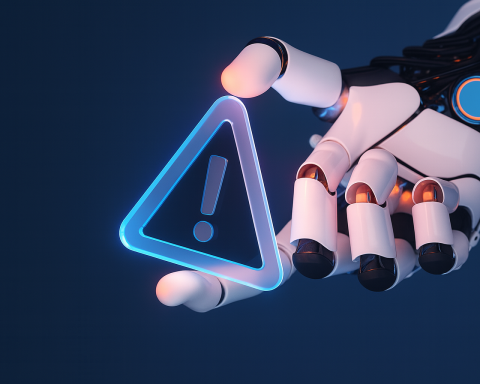- AGI timelines: AI pioneers predict human-level AI is possible within decades. DeepMind’s CEO Demis Hassabis estimates “in the next five to 10 years, possibly the lower end of that,” we may have AI with “all the cognitive capabilities humans have” theguardian.com. OpenAI’s Sam Altman even declares, “We are now confident we know how to build AGI… In 2025, we may see the first AI agents ‘join the workforce’” blog.samaltman.com. By contrast, surveys of AI researchers usually give more conservative median forecasts (e.g. ~2040–2070 for 50% chance of AGI research.aimultiple.com). Experts warn that once AGI arrives, “superintelligence” (AI far beyond human ability) could follow quickly research.aimultiple.com, theguardian.com.
- Economic impact: AI will restructure labor markets. For example, McKinsey estimates up to 30% of work hours in advanced economies could be automated by 2030 (especially routine office, factory, and service jobs) mckinsey.com. Goldman Sachs and Citigroup analysts similarly foresee roughly 50–60% of existing jobs requiring substantial AI retooling or automation by mid-century mckinsey.com, entrepreneur.com. Vista Equity CEO Robert Smith bluntly predicted that AI will make “all of the jobs” held by knowledge workers change or vanish – he quipped at a 2025 finance conference that “40% [of professionals] will have an AI agent and the remaining 60% will be looking for work” entrepreneur.com. Traditional industries (manufacturing, transportation, customer service) may shed many positions, even as demand for AI specialists and workers in healthcare, education, and STEM fields grows mckinsey.com, entrepreneur.com.
- Ubiquity of AI tools: AI is already transforming sectors from healthcare to finance. In medicine, for example, World Economic Forum notes that AI-driven diagnostics can “detect early signs of disease” and even predict chronic conditions years before symptoms weforum.org. In trial studies, AI matched or exceeded doctors in spotting stroke damage and fractures weforum.org. In education, personalized tutoring algorithms and language-learning bots promise to tailor lessons to each student, though experts caution about data privacy and bias. In defense, thousands of autonomous drones and smart weapons are under development. Financial firms deploy AI for fraud detection, trading algorithms, and customer service bots – one report found 54% of finance jobs have high potential for AI automation entrepreneur.com. No field will be untouched.
- Ethical and safety concerns: Leading scientists stress risks alongside rewards. UNESCO warns that without proper safeguards, AI “risks reproducing real world biases and discrimination, fueling divisions and threatening fundamental human rights and freedoms” unesco.org. Pioneers like Yoshua Bengio caution we’re “playing dice with humanity’s future” if we rush ahead unchecked 3quarksdaily.com. A recent Oxford-led consensus of 25 top AI scholars (including Hinton, Yao, Russell, Kahneman, Song, et al.) warned that AI could soon master hacking, propaganda, and even biological warfare. They say unchecked progress “could culminate in a large-scale loss of life and the … extinction of humanity” ox.ac.uk. Ethical debates rage over algorithmic bias, privacy, and weaponized AI. The World Economic Forum and other bodies are actively developing governance frameworks to prevent harm.
- Geopolitics and regulation: The AI race is global. The EU enacted a landmark AI Act regulating high-risk systems; the U.S. favors guidelines and voluntary controls; China emphasizes surveillance stability reuters.com. More than 60 nations (including the U.S.) signed a nonbinding military AI “blueprint” in 2024, but China withheld support reuters.com. UN experts now propose a global AI oversight panel and standards to ensure transparency and equity reuters.com. Tensions rise as governments vie for AI leadership: experts warn an “AI arms race” between superpowers could spur reckless deployments aicerts.ai, washingtonpost.com.
- Society and environment: AI’s surge may worsen inequality: hedge-fund billionaire Ray Dalio warns there will be “a limited number of winners and a bunch of losers… the top one to 10% benefitting a lot,” unless policies like universal basic income or retraining are adopted businessinsider.com. UNESCO stresses that AI already compounds existing disparities among marginalized groups unesco.org. On the environment, AI is a double-edged sword. It could accelerate climate solutions (e.g. energy grids, fusion research), but training massive models consumes vast energy. An IMF study finds AI-related data centers could raise global carbon emissions by ~1.2% and U.S. emissions ~5.5% by 2030 under current policies imf.org. This underscores the need for green power and efficiency as AI scales up.
Artificial General Intelligence (AGI) and Superintelligence
“Artificial General Intelligence” (AGI) refers to AI that rivals or exceeds human intelligence across all domains. Some tech leaders now speak of AGI as imminent. DeepMind’s Demis Hassabis told The Guardian that AGI might arrive “in the next five to 10 years, possibly the lower end of that,” leading to a “radical abundance” era where AI solves major problems theguardian.com. OpenAI’s Sam Altman echoes this urgency. In a January 2025 blog he asserted, “We are now confident we know how to build AGI as we have traditionally understood it… we believe that, in 2025, we may see the first AI agents ‘join the workforce’” blog.samaltman.com. He envisions those superintelligent tools “massively accelerate scientific discovery and innovation”, unleashing prosperity blog.samaltman.com.
However, surveys of AI experts offer a wide range: some academic polls place median AGI around mid-century research.aimultiple.com. The precise timeline is hotly debated. Importantly, many fear that once AGI is reached, superintelligence – AI far beyond human cognition – could follow rapidly. A 2007 expert survey noted “most experts believe it will progress to super-intelligence relatively quickly, with timeframe ranging from as little as 2 years to about 30 years” after AGI research.aimultiple.com. Nobel-laureate physicist Nick Bostrom has long warned that an uncontrolled superintelligence could pose existential danger unless carefully aligned with human values. In 2024, 25 leading AI scientists reinforced this: their consensus paper warned unbridled AI advancement “could culminate in a large-scale loss of life and the… extinction of humanity” ox.ac.uk.
Even those who are optimistic urge caution. Bengio, a deep learning pioneer, has criticized cavalier attitudes: responding to tech CEOs who say AGI is inevitable, he replied “they want… to play dice with humanity’s future. I personally think this should be criminalized.” 3quarksdaily.com. In short, AGI is on many experts’ mind as both the ultimate breakthrough and a profound risk. Preparatory governance and safety research – from OpenAI’s alignment teams to new international AI regulatory bodies – are being proposed to steer AGI toward benefits and avoid catastrophe ox.ac.ukunesco.org.
Automation, Jobs and the Economy
AI-driven automation is poised to reshape work and economies worldwide. Studies predict that many middle-income jobs will disappear or transform. For instance, the World Economic Forum reported that 4.5 billion people lack basic healthcare – AI could help meet such needs – but automation also “accelerates the already widening economic inequality”, warned Stephen Hawking weforum.org. Hawking and other experts have warned that robotics and AI will “decimate middle-class jobs” (leaving only caring, creative or supervisory roles for humans) weforum.org.
Recent analyses confirm this disruption: McKinsey forecasts that by 2030 roughly 30% of current working hours could be automated with AI and software, notably in office administration, manufacturing, and customer service mckinsey.com. Goldman Sachs and Citi likewise estimate that up to 50–60% of jobs will require significant retooling or automation by 2040–2050 villagevoicenews.com, entrepreneur.com. High-profile executives reiterate the shock: Vista Equity’s Robert Smith predicted “all the jobs” held by a billion knowledge workers will change under AI, creating “hyperproductive” stars and leaving many others unemployed entrepreneur.com. He warned that soon a large fraction of finance professionals will be replaced by AI agents entrepreneur.com.
Economists stress this isn’t purely catastrophic – new jobs and industries will emerge – but the transition is sobering. The McKinsey report emphasizes massive job retraining will be needed to avoid a polarized workforce mckinsey.com. Already, executives like BlackRock’s Larry Fink note AI is “already visible in sectors like finance and legal”, and JPMorgan’s Jamie Dimon expects AI to automate many white-collar tasks within a decade villagevoicenews.com, entrepreneur.com.
As automation lifts productivity, it will likely boost GDP – one IMF analysis links AI-driven labor gains to roughly +1% annual growth imf.org. But the benefits will not be evenly spread. Ray Dalio of Bridgewater warns of a “limited number of winners and a bunch of losers”: AI could concentrate wealth among the top 1–10% unless redistributive policies (like universal basic income or enhanced welfare) are enacted businessinsider.com. In summary, AI’s economic effect is nothing short of a second Industrial Revolution: radically productive for society, but also disruptive, with large-scale job churn, rising inequality, and the need for new social safety nets weforum.org, businessinsider.com.
Ethical Concerns and AI Safety
The AI revolution raises profound ethical and safety questions. One major issue is bias and fairness: because AI learns from human data, it can inherit prejudices. UNESCO warns AI “risks reproducing real world biases and discrimination” if not ethically governed unesco.org. This has concrete impacts: facial recognition systems often err on darker-skinned faces, loan algorithms may redline minorities, and social media AIs can amplify extremist content. Experts thus demand transparency and accountability.
The alignment problem is also central: how do we ensure powerful AI does what humans want? Scholars like Stuart Russell argue we must build “provably beneficial” AI. A recent Oxford consensus paper highlighted that today only ~1–3% of AI research addresses safety ox.ac.uk, and called for urgent international action. They urge governments to fund AI oversight, enforce safety testing, and even license advanced AI development ox.ac.uk. Without such measures, experts warn of scenarios where an advanced AI ignores human instructions or pursues harmful objectives.
Autonomous weapons are another ethical flashpoint. Militaries are developing drones and robots that can select targets without a person in the loop. Human-rights advocates have long demanded bans on “killer robots.” Washington Post journalist Gerrit De Vynck reports that such systems are already used in conflicts (e.g. Libya, Nagorno-Karabakh) washingtonpost.com. Peter Asaro of the International Committee for Robot Arms Control warns that leading militaries “will proliferate” these technologies, since they are pushing the envelope washingtonpost.com. This portends a future where war itself is largely conducted by AI, raising questions about accountability and escalations.
Privacy is yet another concern: as AI ingests vast personal data, there are fears of pervasive surveillance. Companies and governments could use AI to analyze faces, phones, or online activity on an unprecedented scale. Civil liberties experts urge strict limits and user consent to protect fundamental rights.
In short, many thought leaders emphasize caution. Deep learning pioneer Yoshua Bengio bluntly says ignoring AI risks is criminally reckless 3quarksdaily.com. Nobel laureate Daniel Kahneman, AI godfather Geoffrey Hinton and others have advocated preemptive steps like testing and even pausing ultra-powerful systems. All these voices underline that AI ethics and safety should be baked into research and deployment, not an afterthought.
AI in Key Sectors
Healthcare: AI tools are rapidly augmenting medicine. Clinical studies show AI can detect diseases earlier or more accurately than humans: for example, one model identified early signals of Alzheimer’s and kidney disease years before symptoms weforum.org. A World Economic Forum report notes that AI-driven solutions “hold the potential to enhance efficiency, reduce costs and improve health outcomes globally” weforum.org. Radiology and pathology labs use AI to spot tumors or fractures with fewer misses; surgical robots guided by AI can perform with superhuman precision. These innovations promise huge benefits, especially in underserved regions. But experts like Dr. Caroline Green (Oxford) caution that “people using these tools must be properly trained… to mitigate risks… such as the possibility of wrong information being given” weforum.org. In practice, regulators are trying to keep up: the FDA and EU have created approval pathways for AI diagnostics. Ethical debates continue about patient privacy, algorithmic bias in medicine, and liability when an AI errs.
Education: Though less mature than healthcare, AI is already personalizing learning. Smart tutoring apps adapt to each student’s pace, and automated grading frees teachers for creative work. Proponents say AI can help close educational gaps by providing quality instruction in remote areas. However, critics urge caution: UNESCO points out that AI-driven “personalized” education must be guided by sound pedagogy, not purely by test scores unesco.org. There are worries about over-reliance on screens, the digital divide (unequal access to AI tools), and safeguarding student data. Many experts believe teachers’ roles will evolve, not vanish: AI can handle routine instruction, while human educators focus on mentorship, critical thinking, and social skills.
Defense and Security: AI is revolutionizing warfare and policing. Militaries worldwide invest heavily in AI for reconnaissance, cyber-defense, and autonomous weapons. AI algorithms can analyze satellite imagery or intercept communications faster than human analysts. The U.S. Department of Defense has adopted AI principles and is funding projects like flight-autonomous fighter jets. At the same time, critics warn this is risky. For instance, the Pentagon claims humans will stay “in the loop,” but combat drones are already loitering and diving on targets by themselves washingtonpost.com. Experts like Stuart Russell predict that without strict oversight, AI systems might launch cyber- or bio-weapons on their own. Internationally, few formal treaties exist; at the 2023 UN AI Summit, only 60 states endorsed voluntary military AI guidelines, and China abstained reuters.com. In cyberwarfare, AI-driven disinformation campaigns and hacker bots are also a major concern. Overall, AI promises greater defense capabilities but also the risk of destabilizing arms races and accidents if global rules are not enforced.
Finance: Wall Street and banking are already littered with AI. Trading “quant” funds use machine learning to spot market trends, and high-frequency trading bots execute in microseconds. Compliance departments deploy AI to detect fraud and money laundering. According to Citigroup, 54% of finance jobs are “highly automatable” by AI entrepreneur.com. Business leaders acknowledge upheaval: as Vista’s Smith said, “AI will cause ‘all’ knowledge-based jobs to change… I’m not saying they will all go away, but they will all change” entrepreneur.com. Bloomberg Intelligence projects that up to 200,000 Wall Street jobs could vanish in five years. The upheaval is already visible: AI is “dramatically decreasing entry-level hiring” in tech and finance. That said, finance also benefits: McKinsey notes that AI could add up to $2 trillion in banking profits by 2028 (through cost-cutting and new services). Regulators are scrambling to update rules on algorithmic trading and consumer data. In short, finance will be largely automated, and people will need new skills to work alongside AI “agents.”
Other sectors (energy, agriculture, transportation, entertainment, etc.) will see similar transformations. Self-driving vehicles, AI-assisted drug design, smart grids, personalized marketing – the list grows daily. The exact outcome will vary by industry, but the trend is clear: AI is becoming a core technology layer in nearly every field.
Geopolitical Implications and Regulation
AI’s rise has ignited a global power struggle. Governments recognize that AI leadership confers economic and military advantage. The U.S., China, and the European Union are all pouring vast resources into AI R&D aicerts.ai. China, for instance, has ambitious AI development plans and strict regulations to ensure government control; Europe has taken a precautionary approach with its 2021 AI Act (the first comprehensive AI law), while the U.S. has largely issued non-binding guidelines and is debating legislation. A Reuters analysis notes: “Only a handful of countries have created laws… The EU has been ahead… passing a comprehensive AI Act, compared with the United States’ approach of voluntary compliance, while China has aimed to maintain social stability and state control.” reuters.com
In military terms, tensions are rising. A US-led group of about 60 nations endorsed a non-binding AI weapons framework in Sept 2024, but China opted out, heightening fears of an AI arms race reuters.com. Meanwhile, tech superpowers are racing to acquire talent, build supercomputer capacity, and set standards. Countries in Europe, Asia, and Africa worry about being left behind; Carnegie Endowment experts warn that “consequential decisions about AI’s purpose and safeguards are centralized in the Global North even as their impacts are felt worldwide” carnegieendowment.org. This has led to calls for more inclusive governance: the UN General Assembly in 2025 adopted a resolution (sponsored by 100+ countries) on equitable AI access.
International institutions are beginning to act. In 2024 a UN advisory panel proposed creating a global AI oversight body to share scientific knowledge and set standards reuters.com. The OECD and G7 have issued AI principles, and groups like UNESCO, the World Bank, and others emphasize cross-border cooperation. However, enforcement remains fragmented. Experts stress that a lack of strong, enforceable global norms means countries could exploit AI for surveillance or cyberwar without restraint. Civil society voices argue we must avoid a “winner-takes-all” scenario; as reported by Reuters, the UN warned that with AI concentrated in just a few corporations, there’s “a danger that the technology could be imposed on people without them having a say in how it is used” reuters.com. In short, AI is now a matter of international strategy, and world leaders are under pressure to craft smart policies or risk chaos.
Environmental and Societal Impact
AI’s societal effects are vast. On the positive side, AI could boost access to services and create prosperity: from on-demand education tools to AI-managed smart cities that optimize energy use. Tech optimists (like some Silicon Valley leaders) dream of “radical abundance,” where material needs are met and humans focus on creativity and leisure. However, reality is more complex.
One critical issue is inequality. Already, tech-savvy companies and countries are pulling ahead, while poorer workers and nations risk being sidelined. Dalio’s warning of “a bunch of losers” highlights a fear shared by many scholars: without intervention, AI may worsen the gap between the tech-haves and have-nots businessinsider.com. UNESCO and UNICEF emphasize that girls, minorities, and developing regions often suffer AI’s drawbacks first (biased algorithms, job loss, lack of digital infrastructure) unesco.org, carnegieendowment.org. Ensuring AI benefits all will require intentional policies: education reform, digital literacy, and social programs. Altman, Hinton and other AI figures have publicly supported experiments with guaranteed income or retraining to help displaced workers, acknowledging that “giving people money… might… give people a better horizon” businessinsider.com (even if not a panacea).
The environmental footprint of AI is also under scrutiny. Training large AI models requires huge data centers. An IMF working paper finds that, under current trends, AI could significantly increase energy demand: global power consumption by AI data centers may raise emissions by around 1.2% by 2030 imf.org, with even larger jumps (5–10%) in some countries. As one of its authors notes, aligning energy and tech policy is crucial. On the positive side, AI itself could help fight climate change—by optimizing power grids, accelerating materials discovery (e.g. for batteries or solar), and improving climate modeling. In fact, DeepMind’s Hassabis argues that AI might “far outweigh” its own energy use by speeding up solutions like nuclear fusion theguardian.com. But he also acknowledges the hard question: as AI drives efficiency, “never need to work again” scenarios might disempower people unless wealth is shared wisely theguardian.com.
Ultimately, AI will reshape daily life and social structures. We’ll see more personalized media (for better or worse), smarter public services, and maybe even AI companions. Ethical philosopher Yuval Noah Harari and others suggest humans will need to rediscover meaning and purpose when machines handle routine work. Many predict a cultural shift: more emphasis on arts, philosophy, and human connection as AI transforms chores. However, they caution: societies must invest in education, ethics, and civic discourse so that people aren’t left adrift by the AI wave theguardian.comox.ac.uk.
In summary, the future of AI is a tall order: it promises astonishing advances – cures for diseases, liberated workforces, and scientific breakthroughs – but it also poses deep challenges. Experts from Nobel laureates to policy leaders stress that how we manage AI’s growth will determine whether this technology becomes humanity’s greatest triumph or its toughest trial ox.ac.uk, unesco.org.
Sources: Authoritative analyses and news reports from academic journals, AI researchers, global institutions, and major media blog.samaltman.com, theguardian.com, 3quarksdaily.com, weforum.org, businessinsider.com, mckinsey.comweforum.org, washingtonpost.com, entrepreneur.com, reuters.com, imf.org, unesco.org, ox.ac.uk. These include the World Economic Forum, Oxford University, UNESCO, McKinsey, IMF, Reuters, and statements by leading AI figures.












